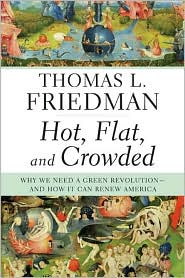The Common Assignment
What is the secret to writing well? The answer is simple. Tell stories.

From academia to poetry, from Economics 440 to English 101, from Thomas Friedman to Mark Twain, the key to writing well -- the key to making an audience care about the words written -- is telling stories. Don't tell me something was this or is that! Tell me about someone who lived like this or about a people who fought for that!
Every couple of weeks, a great story-teller comes to the Writing Center for help. They don't realize they're great story-tellers, but they can't help it -- they simply are. Most people -- believe it or not -- are at least good story-tellers. They can decently describe their favorite movie; they can tell me why they left their previous job. When I ask them how their day has been, they might roll their eyes and snarl out a few details -- what an effective display! They're telling a story with more than just words! They make me feel their pain or their excitement quickly and efficiently!
Yet, when it comes to writing a paper for class, their ability to describe and narrate disappears like a baseball into the thick ivy of Wrigley Field. It happens to all of us, at times, when sitting in front of some boring assignment. Suddenly, our voices change into a cold, robotic droning. And our eyes! They glow a dull blue as the automaton inside us begins take over. Our skin morphing into metal, we inform the world in the most boring way about the topic at hand:

"These days, culture is very important," the us-robot beeps. "Culture is the tool with which people record their heritage and maintain their identity. Author X
viewed her culture as an essential element in her personal development."
I don't know how others feel, but I -- honestly -- fell asleep twice while writing that excerpt! Imagine how professors feel as they read dozens of these papers in a row! Let's do them a favor -- and do our grades a favor! -- and tell stories!
"Culture is sweet tea resting in a sweating glass at the edge of the pool," a living me writes. "Culture is my whole family, dressed in blue, huddled around our glowing TV, watching football. Culture, to author X, was different food and different rituals than it is to me -- but to her and to me, it was and is home, and necessary."
In this non-robot version, notice how real that glass of tea seems -- how it maybe leads some to conclude I'm from the south -- and how it shows a real person behind the writing. In other words, I'm giving the reader more information and in a way so that the reader will remember it also!
Too often students don't think their lives can relate to the sometimes fantastic, sometimes terrible, lives of the authors they read. This perspective is, as scientists say, "hogwash." We must realize that our lives are interesting. The details we notice, the things the happen to us, and the things we do -- they are all unique to us! They all provide perspective and a frame within which we can understand these amazing or awe-inspiring authors. If I grew up in a small Florida town and never did anything spectacular, then I'm unique in that I never did anything spectacular! -- and unique in that I don't understand why people from New Jersey drink "wooder" instead of "water," and that I didn't know what a genuine fall season was like, and that people could get excited about soccer, so on.
The key, therefore, is realizing the relationship between oneself and the subject matter. If I must write about Plato, I will imagine my life applied to his creeds. If I must write about Asian cultures, I will compare my own routines and habits to theirs. If I must talk about language barriers, I will write about my most recent trip to McDonald's -- simple and basic stories unique to me make the work more appealing!
Up next: "Telling Stories in Scientific and Academic Writing"
-Bradley Woodrum





